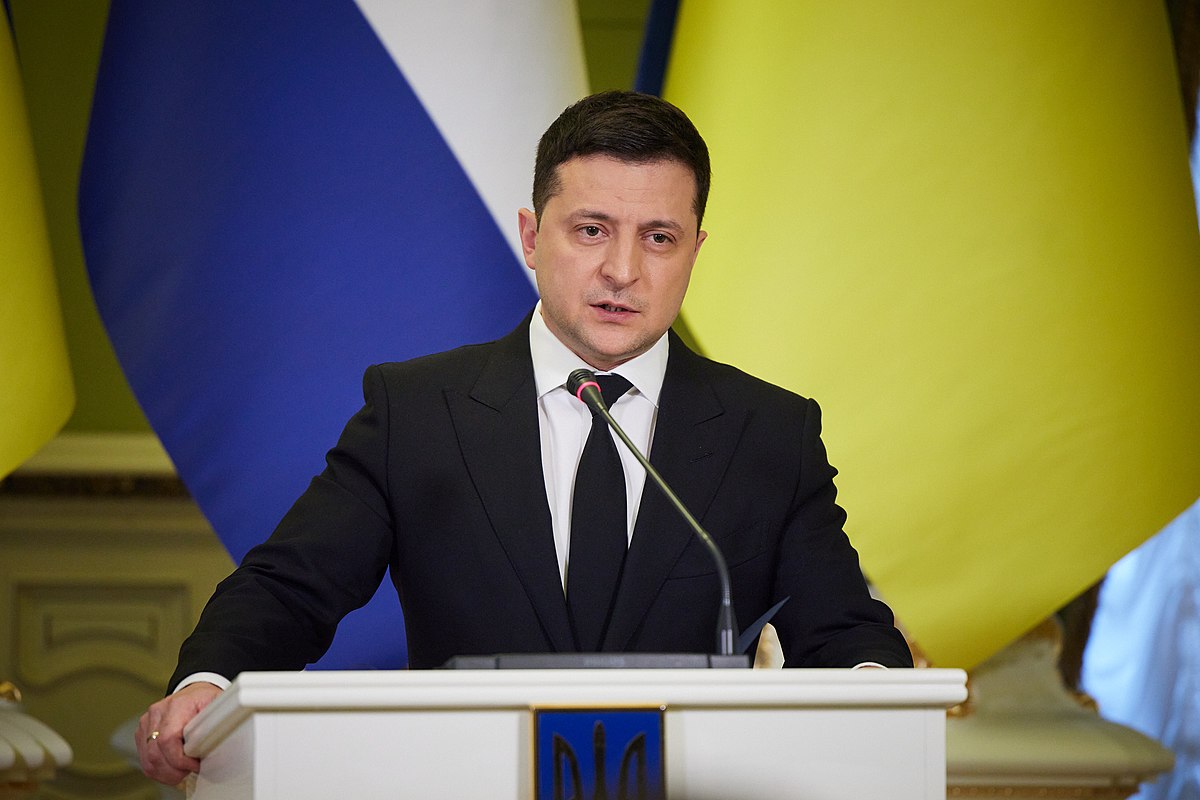In recent days, the world has been in awe of Volodymyr Zelenskyy. The Ukrainian president has risen among the rubble of his invaded country – which he refuses to flee – to unite his nation and with it, and perhaps, a larger part of the world. Press, politicians, and everyday people are praising him as an inspiring leader, marking Zelenskyy as the heroic face of the Ukrainian resistance. For many, this came as a surprise.
Be that well-founded or not, it is not the first time Zelenskyy beats expectations. When he ran for president in 2019, nobody expected a celebrated entertainer to do well, let alone win. The political outsider triumphed by 73% to his opponent, incumbent Petro Poroshenko’s, 25%.
Born on 25 June 1978 in Kryvyi Rih, a large city in central Ukraine, Zelenskyy is the only child of a university professor and an engineer. Both sides of his family are Jewish; his paternal grandfather was only one of four brothers to survive the Holocaust. Zelenskyy graduated from the Kyiv National Economic University with a degree in law, but he never went on to practice.
From a young age, Zelenskyy had been active in theatre. At 17, he joined a comedy troupe with which he performed around Ukraine and Russia and appeared in television shows. With the same people, most of whom are still in his entourage, Zelenskyy went on to create Kvartal 95 (meaning District 95 and named after the neighbourhood Zelenskyy grew up in), the company which produced most of his succeeding endeavours. In addition to starring in series and romantic comedies, Zelenskyy gave voice to beloved characters (notably Paddington in the film’s Ukrainian version) and showcased his moves by winning Dancing with the Stars in 2006.
His biggest success came with Servant of the People, a TV show that run from 2015 to 2019. Zelenskyy played Vasyl Holoborodko, a high school history teacher who is unexpectedly elected president when his speech on corruption becomes a viral sensation after being videotaped and published online by a student.
Any experience in the political field Zelenskyy could account for dwelled in the three seasons of the series. So, when he announced his candidature on 31 December 2018 over national television, most Ukrainians thought it a joke.
Zelenskyy’s presidential campaign reflected his audience engagement skills. Conducted primarily on social media, it provided ample opportunity for public participation, investing in an active relationship with voters. Some read this as Zelenskyy’s lack of specific goals, while others welcomed what seemed a refreshing turn from politicians serving their own interests at the expense of their People.
A few months later, when Zelenskyy won the elections, comments worldwide were snarky. How would a comedian face political pressure? And more importantly, would he deliver what he promised? Zelenskyy’s manifesto had centred around two main points: end political corruption and solve the conflict with Russian separatist forces in the Donbas region. Arguably, given that context, Zelenskyy surfaced as a favourable option for the Ukrainian people. The country had changed leadership numerous times since declaring its independence in 1991 and was tired of the continuous upheaval and failed oaths, a weariness that culminated in the Maidan movement in 2013. Zelenskyy was well-known, liked, and distanced from the tainted political world. During a pre-election debate, he declared rather ingenuously, “I’m not a politician – I’m an ordinary person who came to break the system”. The nation was ready to give him a chance.
Just a few years down the road would prove that his term in office wouldn’t be a walk in the park. On top of the challenges he had signed up for, Zelenskyy had to handle a global pandemic, the ensuing economic crisis, a couple of scandals, and corruption accusations of his own (see Trump’s first impeachment, Pandora Papers, and his link to Ukrainian mogul Kolomoyskyi), and then, an invasion. As with presidents before him, Zelensky’s popularity started to decrease in the middle of his incumbency. Many were criticising him for poor results in tackling corruption. Then on 24 February 2022 Russian forces launched an attack against Ukraine and saw Zelenskyy standing up.
As the world followed the news, many thought Zelenskyy would leap at the chance to leave and lead operations from another, safer place. But audiences witnessed a very different reaction. As Ukrainian cities were being struck, Zelenskyy posted videos of himself on social media, filmed in various places around the country’s capital. These demonstrated a leader determined to defend his homeland. One forthright towards the West on their shortcomings, and one that appeals to his people to stay and fight, but not without being ready to do the same first.
Few, if any, heralded the former actor as the most capable president. And yet if one considers that comedians often thrive in caring for their audiences, while they also build a thick skin from rejections and let-downs, one might begin to see where Zelenskyy’s transferable skills lie.
The latest developments in his country are perhaps the decisive piece in the puzzle that puts the nation in a position of no return. So far, Zelensky has shown that he has more than risen to the occasion. In the denouement of Servant of the People that have, so far, come to materialise for Zelenskyy, he announces a united Ukraine, saved from destruction. Whether this is to be replicated in real life, only history will tell.
Image courtesy of President of Ukraine via Wikimedia Commons

